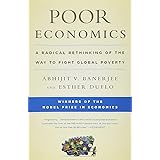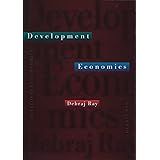
Enjoy fast, free delivery, exclusive deals, and award-winning movies & TV shows with Prime
Try Prime
and start saving today with fast, free delivery
Amazon Prime includes:
Fast, FREE Delivery is available to Prime members. To join, select "Try Amazon Prime and start saving today with Fast, FREE Delivery" below the Add to Cart button.
Amazon Prime members enjoy:- Cardmembers earn 5% Back at Amazon.com with a Prime Credit Card.
- Unlimited Free Two-Day Delivery
- Streaming of thousands of movies and TV shows with limited ads on Prime Video.
- A Kindle book to borrow for free each month - with no due dates
- Listen to over 2 million songs and hundreds of playlists
- Unlimited photo storage with anywhere access
Important: Your credit card will NOT be charged when you start your free trial or if you cancel during the trial period. If you're happy with Amazon Prime, do nothing. At the end of the free trial, your membership will automatically upgrade to a monthly membership.
Buy new:
-23% $45.46$45.46
Ships from: Amazon.com Sold by: Amazon.com
Save with Used - Good
$13.16$13.16
Ships from: Amazon Sold by: Martistore

Download the free Kindle app and start reading Kindle books instantly on your smartphone, tablet, or computer - no Kindle device required.
Read instantly on your browser with Kindle for Web.
Using your mobile phone camera - scan the code below and download the Kindle app.

Understanding Poverty 1st Edition
Purchase options and add-ons
- ISBN-100195305205
- ISBN-13978-0195305203
- Edition1st
- PublisherOxford University Press
- Publication dateApril 20, 2006
- LanguageEnglish
- Dimensions9.22 x 1.24 x 6.16 inches
- Print length496 pages
Books with Buzz
Discover the latest buzz-worthy books, from mysteries and romance to humor and nonfiction. Explore more
Frequently bought together

Customers who bought this item also bought
Editorial Reviews
Review
Book Description
About the Author
Roland Bénabou is Professor of Economic and Public Affairs at Princeton University. He holds a PhD in Economics from Massachusetts Instite of Technology and Engineering diplomas from the Ecole Polytechnique and the Ecole Nationale des Ponts at Chaussés in Paris.
Dilip Mookherjee is Professor of Economics at Boston University, where he has taught since 1995. He has also been Director of the Institute for Economic Development there since 1998. He studied Economics at Presidency College, Calcutta, the Delhi School of Economics, and the London School of Economics.
Product details
- Publisher : Oxford University Press; 1st edition (April 20, 2006)
- Language : English
- Paperback : 496 pages
- ISBN-10 : 0195305205
- ISBN-13 : 978-0195305203
- Item Weight : 1.55 pounds
- Dimensions : 9.22 x 1.24 x 6.16 inches
- Best Sellers Rank: #1,468,913 in Books (See Top 100 in Books)
- #294 in Business Development
- #824 in Poverty
- #920 in Development & Growth Economics (Books)
- Customer Reviews:
Customer reviews
Customer Reviews, including Product Star Ratings help customers to learn more about the product and decide whether it is the right product for them.
To calculate the overall star rating and percentage breakdown by star, we don’t use a simple average. Instead, our system considers things like how recent a review is and if the reviewer bought the item on Amazon. It also analyzed reviews to verify trustworthiness.
Learn more how customers reviews work on Amazon-
Top reviews
Top reviews from the United States
There was a problem filtering reviews right now. Please try again later.
Moreover, suggestions for the how much and what type of assistance should be given to eventually eradicate the prevalence of this problem is explained in much detail.
Shortcomings and weak points, there are a few. One of the most heated debates in development economics of the past years, triggered by Dambisa Moyo's Dead Aid and William Easterly's The Elusive Quest for Growth , has been whether foreign aid is actually a useful tool to combat poverty. Regrettably, there is no essay in this volume on the pros and cons of development assistance in general; nor any discussion of which form (grants, credits) it should take. Moreover, an essay on governance issues in general, and in particular on the role of failed states, wars and armed conflict (as highlighted by Paul Collier's The Bottom Billion ), could have been useful. Furthermore, some articles miss the target: The essay on Ethnic Diversity and Poverty Reduction, for example, demonstrates how a higher degree of ethnic diversity in a Kenyan district leads to less funding for community goods than in a comparable region in neighboring Tanzania, where ethnicity is of less importance. This is certainly a nice finding, but the link to poverty itself is weak; and, besides, Tanzania has a much higher poverty incidence than Kenya.
On the other hand, I found two articles to be outstanding, if not to say jewels. Esther Duflo's essay Poor but Rational tackles the question to which extent the usual concepts of efficiency and rationality can actually be applied to the poor. She underlines that poverty does not only change the set of options available to individuals (the poor are cut off from many opportunities, such as credit), but that being poor also affects the way people think and decide in many ways. Duflo provides a striking example that illustrates the importance of this issue: Over a number of years, Kenyan farmers in the province of Busia had learned about the effects of fertilizer on agricultural productivity, which in fact had more than trebled harvests. Fertilizer, even in low quantities, was available at affordable prices, as was the possibility to buy it on credit. Still, only a very small and even declining fraction of farmers decided to actually use it - obviously farmers did not behave efficiently. What is needed according to Duflo is a theory of how poverty influences decision-making not only by affecting the constraints, but also by changing the decision-making process itself.
In another highly interesting article on the fundamental causes of poverty, Daron Acemoglu, Simon Johnson and James Robinson take up the institutions versus geography debate. Summarizing earlier and more technical articles, they show that it's definitely institutions that matter. If so many countries located in the tropics are poor today, this is a simple statistical association, not more. But wouldn't tropical diseases, for example, constitute a main obstacle to development? No! Mortality rates in India and West Africa due to tropical diseases were indeed high for European settlers, but not so much for locals due to genetic or acquired immunity. The authors show that in 1500 the globe's temperate areas were generally less prosperous than the tropical areas. What in fact happened around the equatorial belt is that colonizing powers tended to establish institutions that were extractive and elite-oriented. By contrast, settlement colonies would be endowed with institutions of private property, allowing the enforcement of rule of law and of property rights for a broad cross section of society while putting constraints on the actions of elites. The different institutional set-up rather than their geographical location would lead to a slow, but constant relative decline of tropical countries, the "reversal of fortune".
I recommend this book to all those who work in the aid industry (an estimated 500,000 people worldwide), to students who look for additional readings to complement their textbooks, and to all those who would like to have a non-technical overview of the vast field of development economics.
Top reviews from other countries
1超豪華執筆陣
[編者]
Abhijit Banerjee:グローバリゼーションでの政府の役割
Roland Benabou:巻頭
Dilip Mookherjee:効率と衡平(適切な資産の不足は社会の一部の切り捨てに繋がり損失)
[寄稿者]
Daron Acemoglu:低開発国の歴史的起源
Jean-Jacques Laffont:深刻な贈収賄
Jean Tirole:知的財産(薬価)
Kaushik Basu:児童労働
Timothy Besley:失敗する政府での公共財の供給量
Debraj Ray:やる気と現実との乖離(貧者は機会があっても掴まない)
[他の一流寄稿者]
A.Deaton,S.Johnson&J.Robinson(with Acemoglu),S.Engerman&K.Sokoloff,T.Piketty,Aghion夫妻,P.Bardhan,M.Eswaran&A.Kotwal,P.Schultz,E.Miguel,E.Saez,M.Ravallion,C.Udry,A.Case,M.Ghatak(with Besley),M.Kremer,J.Morduch,R.Townsend,E.Duflo,S.Mullainathan,K.Munshi,G.Lury
2対象読者
非経済学者向けで数式は一切ない。
3ミクロな視点
家計,会社,共同体,市場が焦点で制度や政府の経済への影響も考察。金融政策,為替レートは扱わない。
4新しい視点
標準的な処方箋(自由市場,所有権)を離れ、社会学や心理学を借用。
5実証志向
事実の記述を重視。
優れた理論家・実証家が平易な言葉でポイントを教えてくれる。開発経済学の魅力を伝える入門書として最適だ。







